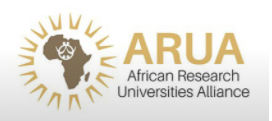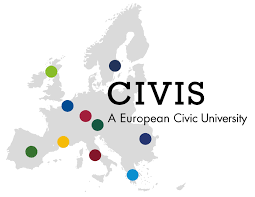-
African Research Universities Alliance

The African Research Universities Alliance (ARUA) was inaugurated in Dakar in March 2015, bringing together sixteen (16) of the region’s leading research universities. It is a network of universities from different countries and different historical backgrounds, but with a common vision. The network is generally about expanding and enhancing significantly the quality of research done in Africa by African researchers. This new network, from inception, was intended to be different from any other regional university networks. The difference was to come largely from the approach to be employed, namely bringing together a number of peer African institutions that were willing to work together by pooling their own limited resources, with a view to generating a critical mass that could more effectively support their limited, but growing numbers of researchers. Underlying this was the conviction that they could thereby leverage this effectively for additional resources from outside.
The university is host to two ARUA centres of excellence:
- Materials, Energy & Nanotechnology (CoE-MEN)
- Migration and Mobility
For further information go to ARUA
-
Association of Commonwealth Universities

The ACU enables member universities to connect with and learn from each other by bringing them together to address key policy issues such as gender and equity, climate resilience, and peace and reconciliation; organising events and initiatives to share best practice and benchmark performance, and running programmes to support professional and institutional development. The ACU is an advocate for its members and for higher education, maintaining close working relationships with other Commonwealth and international organisations including the Commonwealth Secretariat, UN, national governments, regional and national university associations, and a range of international fora.
For further information go to Association of Commonwealth Universities
-
Association of African Universities

The AAU strives to be the leading advocate for higher education in Africa, with the capacity to provide support for its member institutions in meeting national, continental, and global needs. Its mission is to enhance the quality and relevance of higher education in Africa and to strengthen its contribution to Africa’s development.
For further information go to Association of African Universities
-
BRICS

The BRICS Network University is a joint educational project aimed at creating a single educational space, encourage academic mobility, as well as provide the economies of member countries with highly qualified personnel in the fields of energy, economics, computer science, and ecology, among others. The agreements to set up the BRICS Network University were signed by the Education Ministers from these five countries on November 5, 2013 at the UNESCO Headquarters in Paris.
For further information go to BRICS-NU
-
Open Society University Network

The Open Society University Network envisions a new model of global higher education—a long-lasting network with deep partnerships among diverse institutions committed to addressing global challenges collaboratively. This network will be global in demographic and geographic scope and extend to places where it is needed most. It will integrate curricula and research across institutions in different countries and incorporate civic engagement into higher education activities.
For further information go to Open Society University Network
-
Scholars at Risk

Scholars at Risk (SAR) protects scholars suffering grave threats to their lives, liberty, and well-being, in part by arranging positions of sanctuary at institutions in our network for those forced to flee. These positions, which can range from six months to two years but are usually one year in duration, are visiting scholar, researcher, or professor engagements at a higher education institution in a safe location anywhere in the world. SAR also provides advisory services for displaced scholars who are struggling to restart their lives and their careers in their new location.
For further information go to Scholars at Risk
-
Talloires Network

The Talloires Network of Engaged Universities is a growing global coalition of 410 university presidents, vice-chancellors, and rectors in 79 countries who have publicly committed to strengthening the civic roles and social responsibilities of their institutions. It is the largest international network focused particularly on university civic engagement.
For further information go to Talloires Network.
-
CIVIS University Alliance
CIVIS is a European Civic University formed by the alliance of 10 leading research higher education institutions across Europe: Aix-Marseille Université, National and Kapodistrian University of Athens, University of Bucharest, Université libre de Bruxelles, Universidad Autónoma de Madrid, Sapienza Università di Roma, Stockholm University, Eberhard Karls Universität Tübingen, University of Glasgow and the Paris Lodron University of Salzburg.
It brings together a community of more than 470,000 students and 58,000 staff members including 35,000 academics and researchers. Rooted in an urban and regional landscape, CIVIS member universities actively contribute to the social, cultural and economic dynamism of their ecosystem and promote values such as inclusiveness, gender equality, non-discrimination and social equity. The aim of the alliance is to help reduce inequalities, increase access to quality training and create real opportunities for success for students and staff.
Wits is one of the six Strategic African partners of the CIVIS Alliance.
For further information go to CIVIS

